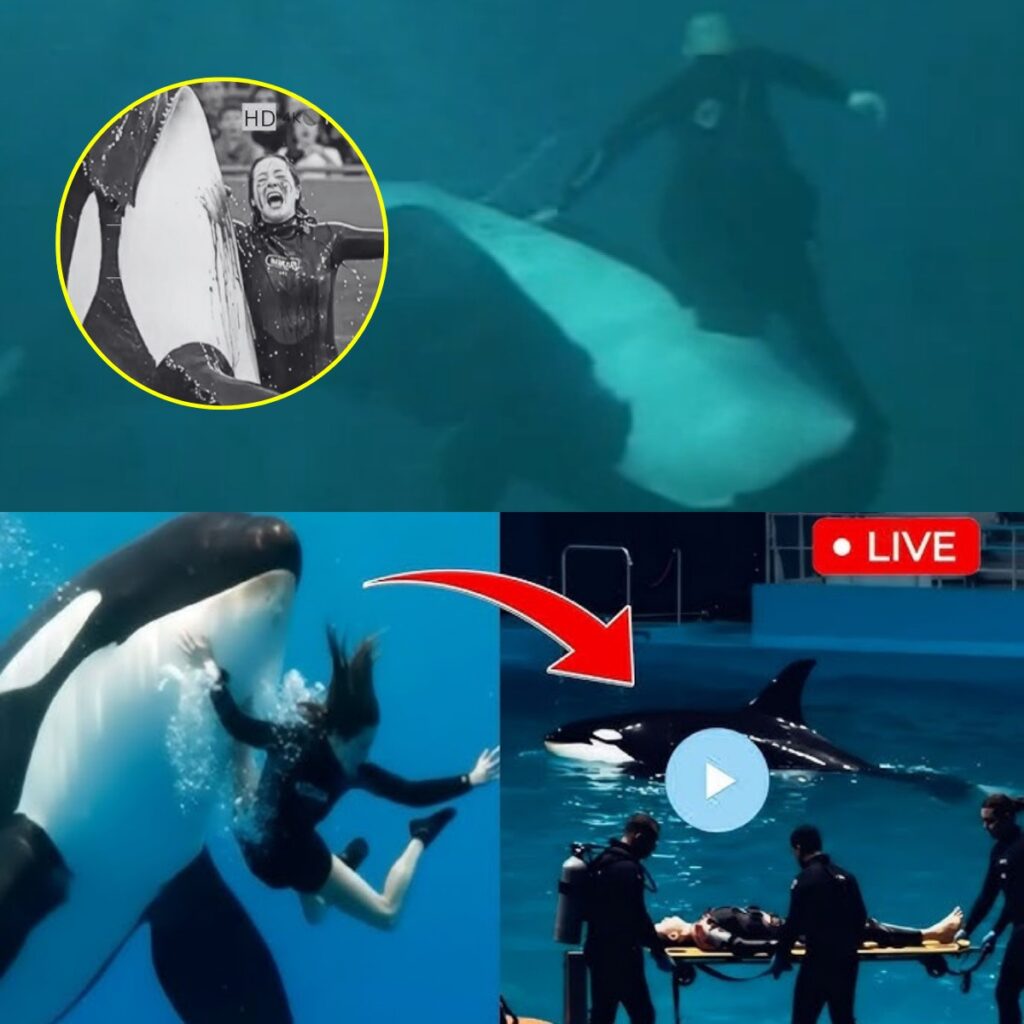Chilling footage reveals the tragic final moments of whale trainer Jessica Radcliffe. The shocking truth behind what happened has left the entire nation in stunned silence

A newly released video has brought fresh heartbreak — and outrage — to the story of Jessica Radcliffe, the experienced whale trainer who lost her life during a performance gone horribly wrong.
The harrowing footage, reportedly captured by an audience member’s phone and later confirmed by investigators, shows Radcliffe’s final minutes as she interacts with a massive orca during what was meant to be a routine show.
A Routine Performance Turns Deadly
Witnesses say the event began like any other: upbeat music, a cheering crowd, and Radcliffe smiling as she signaled the whale through a series of familiar tricks. Moments later, that joy turned to panic.
According to the footage, the orca suddenly veered off its usual path, lunging toward Radcliffe and pulling her into the water. Gasps echoed through the stands as she struggled to resurface. Trainers on the deck shouted commands to the animal, but the scene quickly descended into chaos.
The Disturbing Truth Emerges
While official reports had initially described the incident as a “tragic accident,” insiders now claim there were warning signs long before that day. Several former staff members allege that the orca involved had a documented history of aggressive behavior — incidents that, they say, were downplayed or kept from the public to avoid negative press.
“This wasn’t completely unpredictable,” said one former trainer, speaking on condition of anonymity. “We’d seen flashes of this before, but the pressure to keep the shows running was enormous.”
Public Outcry and Institutional Silence
In the days since the footage surfaced, social media has erupted with demands for accountability. Animal rights groups have renewed calls to end captive orca performances altogether, arguing that confinement and show schedules put both animals and trainers at risk.
Despite the growing backlash, the marine park where Radcliffe worked has remained largely silent, issuing only a short statement:
“Our hearts are broken over the loss of Jessica Radcliffe. She was a beloved member of our family. We are cooperating fully with authorities and reviewing all safety protocols.”
The Nation Reacts
Across the country, the video has been described as “unwatchable” and “gut-wrenching.” News outlets have blurred portions of the footage due to its graphic nature, but even the edited clips have left viewers shaken.
One witness who attended the show told reporters:
“I brought my kids to see something magical. We all left in tears. I’ll never forget the sound of people screaming.”
A Larger Debate
The tragedy has reignited a national conversation about the ethics of keeping large marine mammals in captivity. Critics point to decades of research suggesting orcas suffer psychological stress in artificial environments, sometimes leading to dangerous behavior. Supporters of marine parks argue that such facilities provide education, conservation funding, and close animal care — but even some insiders now admit that the risks may outweigh the benefits.
A Life Remembered
Jessica Radcliffe, 34, had spent over a decade working with marine animals and was widely regarded as a dedicated, compassionate trainer. Friends describe her as “fearless but gentle,” someone who “lived to inspire people to love the ocean and its creatures.”
Her family has asked for privacy but released a short message:
“Jessica brought light and laughter to everyone she met. We ask that her passing be a catalyst for change, so no other family has to endure what we have.”
The Road Ahead
Authorities are still investigating the incident, including reviewing the full unedited footage and park safety records. Whether criminal negligence charges could be filed remains unclear.
For now, the chilling images of Jessica Radcliffe’s final moments have become a haunting reminder of the unpredictable — and sometimes deadly — nature of working with wild animals. And as the debate over orca captivity intensifies, one question continues to echo: could this tragedy have been prevented?